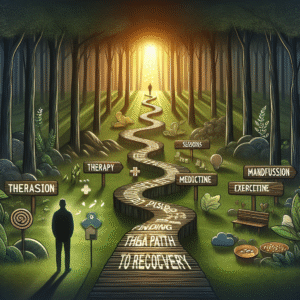When you hear about someone “doing nothing,” it’s easy to equate it with laziness. That’s not your fault—it’s a deeply ingrained societal view. But the truth is, our culture would be far healthier and more productive if rest were recognized not as a weakness, but as a vital part of a well-rounded life. Mastering the art of doing nothing means understanding the powerful role rest plays in your well-being—and learning how to integrate it into your daily routine with intention and purpose.
In this article, we’ll dive into the concept of rest—why it’s essential, and the wide array of benefits it offers. We’ll also provide practical tips to help you master the art of doing nothing, enabling you to incorporate more intentional rest into your daily life.
Why Is Rest So Important?
Rest isn’t a luxury—it’s a biological and psychological necessity. It plays a critical role in maintaining both your physical health and mental clarity. When you consistently allow yourself to rest, you create the conditions for your body to heal, your brain to reset, and your emotions to rebalance.
Physiologically, rest supports immune function, muscle recovery, and hormone regulation. Mentally, it enhances focus, sharpens memory, and improves your ability to manage stress. Emotionally, it helps regulate mood and builds resilience.
Without adequate rest, everything suffers. Burnout becomes inevitable, creativity dries up, and even the simplest decisions feel exhausting. You may be busy, but you won’t be effective.
In contrast, intentional rest—whether it’s sleep, stillness, or unstructured time—boosts your productivity, creativity, and emotional stamina. It’s the invisible fuel behind a sustainable, fulfilling life.
10 Key Benefits of Rest
Here’s a list of some of the most common benefits of rest explained:
- Enhanced Cognitive Function: Rest allows our brains to process information, consolidate memories, and improve learning.
- Increased Creativity: Stepping away from constant activity provides our minds with the freedom to wander, fostering innovative ideas and solutions. Many creative breakthroughs occur during periods of relaxation.
- Improved Decision-Making: A well-rested mind enhances our ability to make informed and effective decisions, as fatigue can cloud judgment and increase the likelihood of errors.
- Stress Reduction: Regular rest periods help lower stress hormone levels, promoting a sense of calm and emotional well-being. This reduction in stress contributes to better mental health and resilience.
- Physical Recovery and Healing: Adequate rest is crucial for allowing muscles time to recover and repair from physical exertion.
- Enhanced Mood: Rest has a profound impact on mood regulation. When well-rested, individuals are less likely to experience irritability, anxiety, or depression.
- Improved Relationships: Taking time to relax allows individuals to be more present and engaged with loved ones, enhancing communication, empathy, and overall relationship quality.
- Boosted Immunity: During sleep, the body produces cytokines, proteins that help fight infection and inflammation. Sufficient rest ensures the production of these proteins, strengthening the immune system and reducing susceptibility to illnesses.
- Better Decision Making: A well-rested mind is better equipped to make sound decisions. Fatigue can impair judgment, slow reaction times, and decrease critical thinking abilities.
- Balance and Life Satisfaction: Rest is key to maintaining a balanced life, allowing individuals to enjoy their lives overall and appreciate simple pleasures.
How is Rest Different from Laziness?
It’s easy to confuse rest with laziness—especially in a culture that equates constant activity with value. But the two are fundamentally different. Rest is an intentional, restorative practice. It’s a proactive choice that helps your body and mind recover so you can show up fully in your life and responsibilities.
Laziness, on the other hand, is a lack of motivation or unwillingness to act. Rest serves a purpose; laziness avoids purpose. When you rest, you’re refueling. When you’re lazy, you’re resisting.
Understanding this difference is critical. When you begin to view rest as essential rather than indulgent, you give yourself permission to recharge without guilt.
Incorporating Rest into Your Life
To soak in the benefits of rest, consider putting the following strategies to use:
- Schedule Regular Breaks: Allocate specific times during your day for rest. Techniques like the Pomodoro Technique—working for 25 minutes followed by a 5-minute break—can be effective in maintaining productivity while allowing for necessary rest.
- Engage in Enjoyable Activities: Participate in hobbies or activities that bring you joy and relaxation, such as reading, walking, or listening to music. These activities provide mental breaks and contribute to overall happiness.
- Prioritize Quality Sleep: Ensure you get 7-9 hours of sleep each night to allow your body and mind the time they need to recover and function optimally. Quality sleep enhances mood, energy levels, and cognitive performance.
- Set Boundaries: Define clear limits between work and personal time to prevent burnout. Communicate these boundaries to colleagues and family members to foster a supportive environment for rest.
- Practice Mindfulness and Meditation: Incorporate mindfulness techniques to center yourself and reduce stress. Practices like deep breathing, progressive muscle relaxation, and yoga can improve mental clarity and emotional stability.
- Engage in Nature: Spending time outdoors can rejuvenate the mind and body. Activities like walking in the park, hiking, or simply sitting in a natural setting can lower stress levels and improve your mood.
- Limit Technology Use: Designate tech-free times, especially before bed, to reduce mental clutter and improve sleep quality. Unplugging from devices allows for genuine relaxation and connection with the present moment.
- Cultivate Gratitude: Embrace a gratitude practice by reflecting on positive aspects of your life. This shift in focus can enhance emotional well-being and promote a restful state of mind.
- Incorporate Power Naps: Short naps during the day can boost productivity and energy levels. A 20-30 minute nap can refresh the mind and improve focus for the remainder of the day.
Mastering the art of doing nothing is not about avoiding responsibilities but about recognizing the essential role rest plays in maintaining a healthy, balanced, and productive life. By understanding and embracing the importance of rest, we can enhance our cognitive functions, creativity, decision-making, and overall well-being. Prioritizing rest allows us to recharge and approach our daily tasks with renewed energy and focus, ultimately leading to a more fulfilling and successful life.






